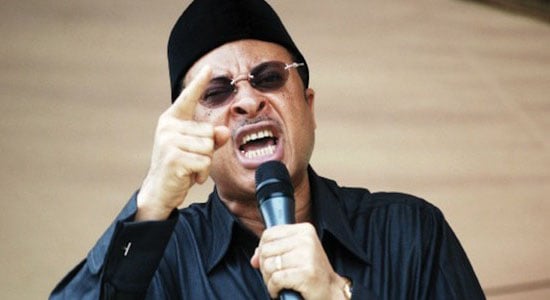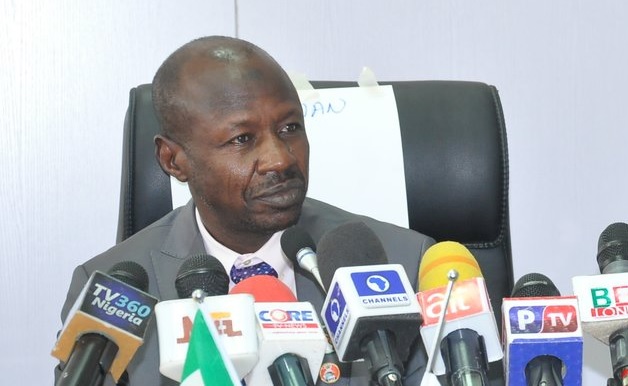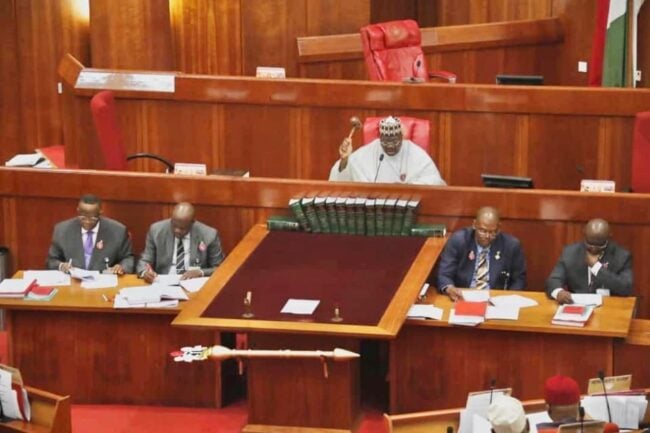WATCH: How Dubai police busted Hushpuppi, 11 Africans in 'N168bn' cyber-fraud
Historically and traditionally, many African communities cared about the source of wealth of its members. They avoided questionable wealth so as not to taint the moral high standing or reputation of families or the entire community. There were consequences for those who acquired ill-gotten wealth. They couldn’t flaunt it freely as they stood the risk of being excommunicated from the community. Other town men and women were wary of them and maintained “social distance” from them. They were the butt of jokes, limericks and caricature, often providing material for local bards. The reputation of the community was a common heritage of all so nobody was allowed to destroy it. That was our traditional setting where moral standing and values were everything. This inbuilt system to check character deficit at the community level worked well. Individuals knew they owed family and community responsibility of ensuring they don’t bring shame or disrepute to the family name.
That was how it used to be. Now things have changed, taking a turn for the worse. Persons with questionable characters and inexplicable source of wealth are celebrated and honoured with different titles. They have become the new role models of what “hardwork and smartness” should be. Questionable wealth is not just affecting the reputation of families and communities but it has assumed a dimension that has rubbed off on the dignity of every Nigerian and disincentivized the desire and passion for enterprise.
All of this is worrisome. Most Parents who should ordinarily be the first set of persons to confront their children on their source of wealth welcome them home with fanfare. Daughters are expected to bring home a booty with no questions asked while mothers look forward to celebrate in blissful “ignorance”, Spiritual leaders happily pray over houses, land, cars, businesses and much wealth, after all, the whole world belongs to God.
Inexplicable money provides the leverage for Politicians to win elections as the political space is heavily monetized , Traditional rulers confer on them some funny titles or admit them into their traditional Council. On the face value, it appears nobody is immune to the power and efficacy of questionable wealth. People who managed to summon courage to ask questions based on conviction are called or termed envious, even evil minded. . Our value system has completely been eroded and turned upside down to the extent that we ought to apologize to our forebears.
Advertisement
Nothing demonstrates the change in our values system better than the daring flamboyant lifestyle of some of the persons whose means of livelihood is obviously questionable. One was arrested in Dubai recently and handed over to the US Federal Bureau of Investigation. He is currently standing trial for multiple internet scam cases in Chicago and later in Los Angeles in the US. Before his arrest he was the toast of a section of Nigerian youths and social media influencers, and was naturally their idea of who a successful person is. Under 24 hours, everything he represented and “worked “ for crumbled under the watchful eyes of international security network. The case in Dubai is alleged to be internet fraud which is the most alarming of all fraud related issues, assuming an epidemic dimension in our country comparable only to Covid 19. In that same week, a different young Nigerian, who recently featured in Forbes Magazine’s “30 under 30 billionaires “pleaded guilty to internet scam in Virginia USA. Another riddle was a Nigerian who is in prison yet succeeded in scamming a European one million pounds sterling. One of the most embarrassing situation is the revelation by the Federal Ministry of Justice that three countries;the US, India and Ghana have recently written to the Country requesting for the extradition of 11 Nigerians to come and answer to internet fraud related cases. The stories abound and are embarrassing.
Internet fraud has become quite attractive to a few young persons and has eaten so deep in our,system that global statistics believe that one in every five cases originates from Nigeria or must involve a Nigerian. A famous economist described it as illicit economy, partially fueling the economy without we acknowledging it, however the major difference with other economic activities is the difficulty in reporting or recording it. A 2013 data said it accounted for $12.3billion movement of funds around the world, more than the size of the economy of many sub Saharan African countries. Internet fraud which is one of the building blocks of the illicit economy is thriving because it offers an option for young people who cannot find legitimate jobs that is either unavailable or disappearing faster than the population is growing. It is also a tool to address, albeit negatively, the rising inequality and poverty in Nigeria.
The negative impact of internet fraud and other financial crimes on our economy is known; from funding other criminal activities, heightening inflation, undermining free trade to scaring away investors. However society seems to inadvertently confer legitimacy on it by the acceptance it accords those who benefit from it, to the lame excuse made to justify what is clearly against our most cherished values. More scary is the impact on our reputation as Nigerians. Our citizens who are traveling or living abroad are first viewed from the prism of criminality, no matter how legitimately they operate or how harmless they look. This is responsible for the treatment they get at various points of entry. Nigerians doing business with western nations now have to work extra hard to prove their credibility. Investors are losing confidence in our economy and environment bearing in mind that we are not the investors first choice destination. This also fuels anti immigrant campaign going on in some parts of Europe and America targeted at mostly Nigerians.
Advertisement
I must acknowledge that government has tried at different times to take steps to confront this menace that does a lot of harm to our reputation and economy. From creation of Economic and financial crimes commission (EFCC), Nigerian Financial Intelligence Unit (NFIU) to the passage of relevant laws by our National Assembly. The EFCC has investigated thousands of internet fraud related cases and achieved a few convictions. However the wire scam or internet fraud “industry” continues to grow instead of abating. The import of this is that law enforcement is good but principally serves deterrent purposes and do not deal with the root causes. This takes us back to our old time cherished value system that worked for us in times past.
At the root of quest for wealth at all cost in our society today, especially amongst young people, is our value system and breakdown of social morality. Our values are a reflection of who we are and things that are important to us. It also says something about our needs, hunger and thirst. At the most basic level Nigerians value trust and cares about integrity and reputation. I acknowledge the fact that needs change from time to time and so do values. What is happening now is a reflection of changing value system which we must tackle head on. Values can change but our core cannot and should not change. We cannot allow the few unscrupulous ones amongst us define our values or who we are. Values are shaped by beliefs, education in the broadest sense, exposure, experiences and our environment. A Search for solution to the restoration of our value system brings to the fore the content of our education curriculum, family grooming, leadership models and influences our young people are exposed to.
It was Theodore Roosevelt, a former President of the US who said “to educate a person in mind and not morals is to educate a Menace to society”. We need to make a provision in our primary and secondary school curriculum for moral and civic education to strengthen whatever moral fiber our young people bring from home.
Parents have a critical role to play in resetting the value system of their children. Children learn values by observation and drawing conclusions about what their parents think is important. Regardless of what you say, it is what you do that influences their values.Unfortunately mass poverty has degraded the corrective power of family as impoverished parents now look up to their errant children for sustenance.
Advertisement
Leaders represent the aggregate of who their society is, so have a role to play in shaping values. Typically leaders should have positive influence on young people but a situation such as we are currently facing where persons of questionable character are now in leadership cadre portends danger for society. The political system which is the source of government leadership and authority has been monetized. Political parties hawk their tickets to persons with incredible wealth irrespective of their source of livelihood or background. Religion has become commoditized. Imams and Pastors are now self appointed and confer status in mosques and churches according to the size of an individual’s financial support. Our society has developed a skewed reward system making hardwork unattractive. We tend to reward material accomplishments at the expense of intangible intellectual achievements.
It makes sense that as government, community leaders, religious leaders , entrepreneurs, and parents we should be seriously concerned about the future of our nation as our young people get more and more obsessed with the quest for wealth at the cost of our reputation and our values. It is time to demonstrate willpower and press the reset button.
Views expressed by contributors are strictly personal and not of TheCable.
Add a comment







